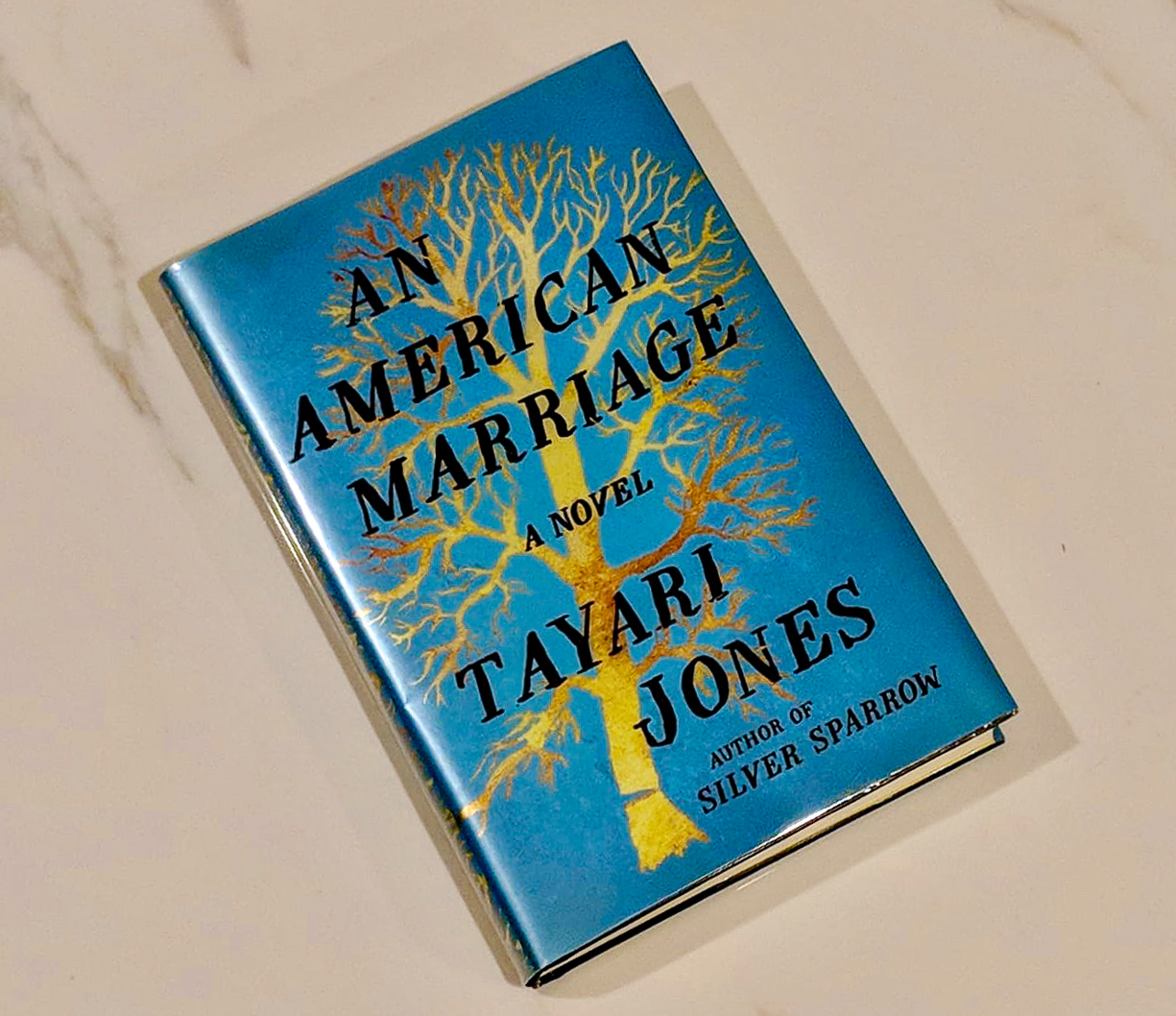An American Marriage
Summer is usually my most fruitful reading season. There’s something so special about poring over pages as cold drinks condensate, noting the pretty pattern dappled shade makes on paperbacks, watching humidity curl the edges of drugstore mystery novels, and using hardcovers to shield your eyes from the sun as you stare up into it. Reading has always been the thing that made summertime’s requisite rituals – the beaches, boats, road trips, and cottages – feel uniquely rewarding for me.
But this summer has been different. Instead of devouring my reading material from the comfort of various hammocks, docks, and picnic blankets, I’ve been reading from home, and, loathe as I am to admit it, I’ve been a bit listless. I plod and labor, stop and start – finishing Vicarious Reading picks just in time for monthly meetings, losing interest in books before they end, and even finding myself halfway down a page unable to recall what I just read.
But there is one exception to this rule, one book I recently read with the gusto of summers past – Tayari Jones’ An American Marriage. I know, I know – I’m far from alone here. An American Marriage has shown up on a million ‘best of’ lists, been anointed by Oprah, and is a fixture on feature tables of bookstores across the country. Hell, a few days ago, even Obama declared it to be one of his favorite reads of Summer 2018, describing the novel as “a moving portrayal of the effects of a wrongful conviction on a young African-American couple.”
An American Marriage is that – a tale of the havoc unjust imprisonment can wreak – but it also operates on so many other levels. This is storytelling as social commentary, as a portrait of two people trying to make it work, as a depiction of Atlanta that skirts the city’s stereotypes, and as a canvas for Jones’ ideas about happiness, hope, and the choices we make. It combines the tension of a thriller, the grace of literary fiction, and the rawness of diary entries, which somehow collectively contribute to a can’t-put-it-down quality that makes it just right for summer binge-reading. All of which is a long-winded way of saying – I loved it.
The plot itself is simple. Roy and Celestial are an upwardly mobile married couple living in Atlanta – well-raised, polished, and ambitious. But no number of good choices can save Roy from the misfortune of being a black man in the wrong place when a crime occurs, and he ends up in jail. Roy and Celestial’s lives diverge from there. She finds new love and artistic success in an arc that’s outwardly unmarred by Roy’s fate; he struggles to reconcile the life he expected to have with the one cruelly thrust upon him.
But embedded in this simple story are important lessons and questions, and in this way An American Marriage often feels like a parable. As I read, Jones got me thinking about the myth of infallibility (“I knew things like this happen to people, but by people I didn’t mean us”), the question of whether the means matter if you like the ends (“I’ve likely rolled with punches when I should have hit back. But I rolled my way into a life I love”) and the illusion of self-determination (“In poker, you get five cards. Three of them you can swap out, but two are yours to keep: family and native land.”)
My favorite passage of the whole book – the one I really broke out the pen and highlighter for – is below. It’s just one paragraph, but it might contain more poignant philosophizing and beautiful writing than the remaining sum of my summer reading:
“ Up until now, I thought I knew what was and wasn’t possible. Maybe that’s what innocence is, having no way to predict the pain of the future. When something happens that eclipses the imaginable, it changes a person. It’s like the difference between a raw egg and a scrambled egg. It’s the same thing, but it’s not the same at all. That’s the best way I can put it. I look in the mirror and I know it’s me, but I can’t quite recognize myself. Sometimes it’s exhausting for me to simply walk into the house. I try to calm myself, remember that I’ve lived alone before. Sleeping by myself didn’t kill me then and will not kill me now. But this is what loss has taught me of love. Our house isn’t simply empty, our home has been emptied. Love makes a place in your life, it makes a place for itself in your bed. Invisibly, it makes a place in your body, rerouting all your blood vessels, throbbing right alongside your heart. When it’s gone, nothing is whole again. Before I met you, I was not lonely, but now I’m so lonely I talk to the walls and sing to the ceiling.”
Right???

